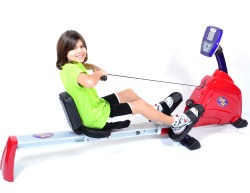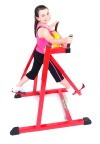Benefits Of Exercise

On a Physiological Level:
Research shows that exercise can increase the size of the hippocampus, which is associated with better performance on spatial reasoning and other cognitive tasks.
Boosts levels of brain-derived neurotrophic factor (BDNF), a substance important for a substance essential for the growth of brain cells
Stimulates neurogenesis—the birth of new neurons
Mobilizes the expression of genes that are believed to enhance brain plasticity—i.e., the ability of the brain to change its neural pathways.
Throughout life, your neural networks reorganize and reinforce themselves in response to new stimuli and learning experiences.
This body-mind interaction is what stimulates brain cells to grow and connect with each other in complex ways.
They do so by extending branches of intricate nerve fibers called dendrites (from the Latin word for "tree").
These are the antennas through which neurons receive communication from each other.
Rewards and Benefits
Experts recommend that teens get 60 minutes or more of moderate to vigorous physical activity each day. Here are some of the reasons:
- Exercise benefits every part of the body, including the mind. Exercising causes the body to produce endorphins,
- chemicals that can help a person to feel more peaceful and happy. Exercise can help some people sleep better.
- It can also help some people who have mild depression and low self-esteem.
- Plus, exercise can give people a real sense of accomplishment and pride at having achieved
- a certain goal — like beating an old time in the 100-meter dash.
- Exercising can help you look better. People who exercise burn more calories and look more toned than those who don't.
- In fact, exercise is one of the most important parts of keeping your body at a healthy weight.
- Exercise helps people lose weight and lower the risk of some diseases. Exercising to maintain a healthy weight
- decreases a person's risk of developing certain diseases, including type 2 diabetes and high blood pressure.
- These diseases, which used to be found mostly in adults, are becoming more common in teens.
- Exercise can help a person age well. This may not seem important now, but your body will thank you later.
- Women are especially prone to a condition called osteoporosis (a weakening of the bones) as they get older.
- Studies have found that weight-bearing exercise, like jumping, running or brisk walking, can help girls (and guys!) keep their bones strong.
Written By Mary Gavin, MD. This article can be found at www.kidshealth.org

